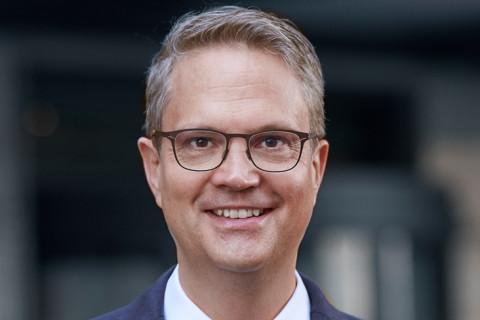Your Main Contact
Christiane Kunz
Head of Marketing
+49 731 96880-0
Download as PDFOn 31 May 2016, PLUTA Rechtsanwalts GmbH hosted a symposium on international insolvency law in Bremen. In the Grand Hall of the venerable Schütting House, home of the Bremen Chamber of Commerce, the PLUTA experts, Dr Christian Kaufmann, Mr Ivo-Meinert Willrodt, Dr Joaquim Sarrate and Prof Alessandro P. Scarso, provided information on the amendments to the European insolvency law. In addition to insolvency judges and judicial officers, the list of guests that were present at the event also included insolvency administrators, consultants and representatives of banks.
Dr Christian Kaufmann, Managing Director of PLUTA Rechtsanwalts GmbH and Head of the PLUTA branch offices in Bremen and Oldenburg, explained what concrete effects the changes to the European insolvency law will have for companies and their creditors.
The background is the new version of the European Insolvency Regulation (EIR), which took effect almost one year ago in June 2015 and replaced the previous version. The new version has introduced not only restrictions on the so-called forum shopping but also a large number of other changes and will apply to insolvency proceedings which are opened later than 26 June 2017. The old law will continue to be valid until then.
Dr Kaufmann explained, “Even after the reform, it will still be possible to move the COMI, in other words the centre of main interest, to another country in order to take advantage of the insolvency law applicable there (forum shopping). However, if the COMI is to be moved in this manner, it may be necessary that the creditors be expressly informed of this in order to ensure that moving the COMI also has the desired effect.” Simply moving the registered office of a company is often not sufficient. “In any event, moving the registered office in the course of the last three months before a company files for insolvency is now of no significance in all cases since, in this respect, a restriction period has been introduced. A restriction period has also been introduced for self-employed people and consumers – three months and six months respectively.”
Restructuring will continue to be an option as part of a scheme of arrangement pursuant to English law if the company has sufficient connection with Great Britain. “Even in the new version, the British schemes of arrangement are not subject to the European Insolvency Regulation since the British made a point of not including them in Annex A to this regulation.
Filing for secondary insolvency proceedings, in other words, insolvency proceedings for the assets of a company in the creditors’ own country, will be more difficult for the creditors of this company if it has moved its COMI to a different country. In this way, the blocking power of local creditors will be reduced.
Obligation to cooperate in Insolvency Proceedings
Mr Ivo-Meinert Willrodt, Authorised Signatory of PLUTA Rechtsanwalts GmbH and Head of the PLUTA branch office in Regensburg, gave a talk on the requirement for cooperation between the persons and entities involved in insolvency proceedings, in other words among the insolvency courts, among the administrators and between the administrators and the courts.
Mr Willrodt, who is also responsible at PLUTA for international business and collaboration with the international network BTG Global Advisory, explained, “In future, there will be more communication in cross-border insolvency proceedings, in particular between the courts.” In the Anglo-American area, this is already normal practice today. “The American or the British judge calls his or her foreign colleague if there is a problem. This will also find its way into the German courts.”
In future, the new version of the EIR will namely make cooperation between courts obligatory. In the previous version of the EIR, cooperation was a mandatory requirement only for the insolvency administrators – in other words, for the administrator of the main insolvency proceedings at the place of the COMI and for the administrator of the secondary proceedings.
The new regulations are based on the Global Principles for Cooperation in International Insolvency Cases as well as the EU Cross-Border Insolvency Court-to-Court Cooperation Principles and Guidelines, which are not legally binding regulations, but recommendations on how courts should communicate with each other. Mr Willrodt explained what, according to these regulations, will subsequently be allowed and forbidden with the help of case studies.
Disposition of Assets in Spain and Italy
Following a brief overview of the insolvency law in each of the two countries in question, Dr Joaquim Sarrate, Managing Director of PLUTA Rechtsanwalts GmbH and Head of the PLUTA branch office in Barcelona, and Prof Alessandro P. Scarso, Head of the PLUTA branch office in Milan, gave some practical advice on the disposition of assets in Spain and Italy respectively, in particular regarding the sale of property and stakes in other companies and the assertion of claims.
The first necessary step in selling stakes in a company in Spain is to calculate the value of the stake and ascertain who the other partners are. “Therefore, it is necessary to insist on seeing the Register of Partners since the partners do not appear in the Commercial Register, however, they often have the right of first refusal.” It is necessary to ask the managing director for the Register of Partners. “It is important to know that the activities of the managing director may also under circumstances be carried out by the insolvent German company. In Spain, namely, legal entities may also be the managing directors of a company,” explained Sarrate. This may result in liability risks for the German company.
When it comes to securing properties, it is important to have the insolvency proceedings entered in the Land Register as soon as possible. According to Mr Sarrate, “This requires good communications with the registrars. However, this can only succeed if you have someone on the spot in Spain who can take care of this.” In the case of co-ownership shares, it is often necessary to dissolve the co-ownership community. Mr Sarrate explained what the procedure was according to Spanish law.
Mr Sarrate pointed out that it was first of all necessary to differentiate between proceedings in court and out of court, as in Germany, when it came to asserting claims. A credit worthiness check is always a great help to begin with. According to Mr Sarrate, “The Servicio de Indices always turns out to be a particular advantage. This is for a register enquiry which provides information on all the debtor’s ownership rights to property in Spain.” Assistance in asserting claims is also provided by the so-called office fax. “In this way, not only is proof of delivery provided, such as with a registered letter, but also of the content of the letter.” In the case of legal assertion, in contrast to German law, attention should be paid to taking legal enforcement action. “This would include informing the judge of the debtor’s known assets. Furthermore, an application could be made for the court to determine what assets the debtor has,” Mr Sarrate continued.
In his brief overview of the Spanish insolvency law, Mr Sarrate emphasised the option of appointing a legal entity as the insolvency administrator – a controversial topic in Germany that has recently given rise to a lot of discussion. Recently, the Federal Constitutional Court (Bundesverfassungsgericht) confirmed the previous practice in Germany of only appointing natural persons as the insolvency administrators. Furthermore, Mr Sarrate pointed out the high concentration of insolvency courts in Spain. Time and time again, a higher concentration of insolvency courts has also been requested in Germany – a request which is however thwarted by the resistance in some of the Federal States.
Peculiarities in Italy
In his introduction to Italian insolvency law, Prof Alessandro P. Scarso emphasised the difficulties which are caused by the absence of an explicit obligation to file for insolvency before a company may undergo restructuring. “A delay in filing for insolvency is even more standard practice in Italy than in Germany. Often several years pass until a company gets around to filing for insolvency.”
Prof Scarso continued to present the different forms of pre-insolvency restructuring proceedings in Italy. The need to introduce such proceedings as these was discussed in Germany for a long time. In view of the requirements expected from Brussels, there will also be such proceedings in Germany in the foreseeable future. What exact form they will take is currently the subject of intensive scientific discourse.
According to Prof Scarso, it was interesting that, under certain conditions, investors who wished to take equity interests in the company as part of such pre-insolvency proceedings in Italy, recovered up to 80% of the money they had invested as higher-ranking claims in the event of a subsequent bankruptcy, in other words if the restructuring later failed. “This increases the willingness of investors to participate in crisis-stricken companies,” Prof Scarso continued.
With regard to the assertion of claims, Prof Scarso pointed out that, in contrast to German law, no special measures for interrupting the limitation period were needed. “It suffices to write a formal letter in which the creditor mentions his or her entitlement and states that the letter interrupts the limitation period.” To conclude, Prof Scarso dealt with the particulars of recognizing reservations of title in Italy.
PLUTA expert

Dr. Christian Kaufmann
Rechtsanwalt, Fachanwalt für Insolvenz- und Sanierungsrecht

Ivo-Meinert Willrodt
Rechtsanwalt, Fachanwalt für Insolvenz- und Sanierungsrecht, Executive M.B.A.-HSG